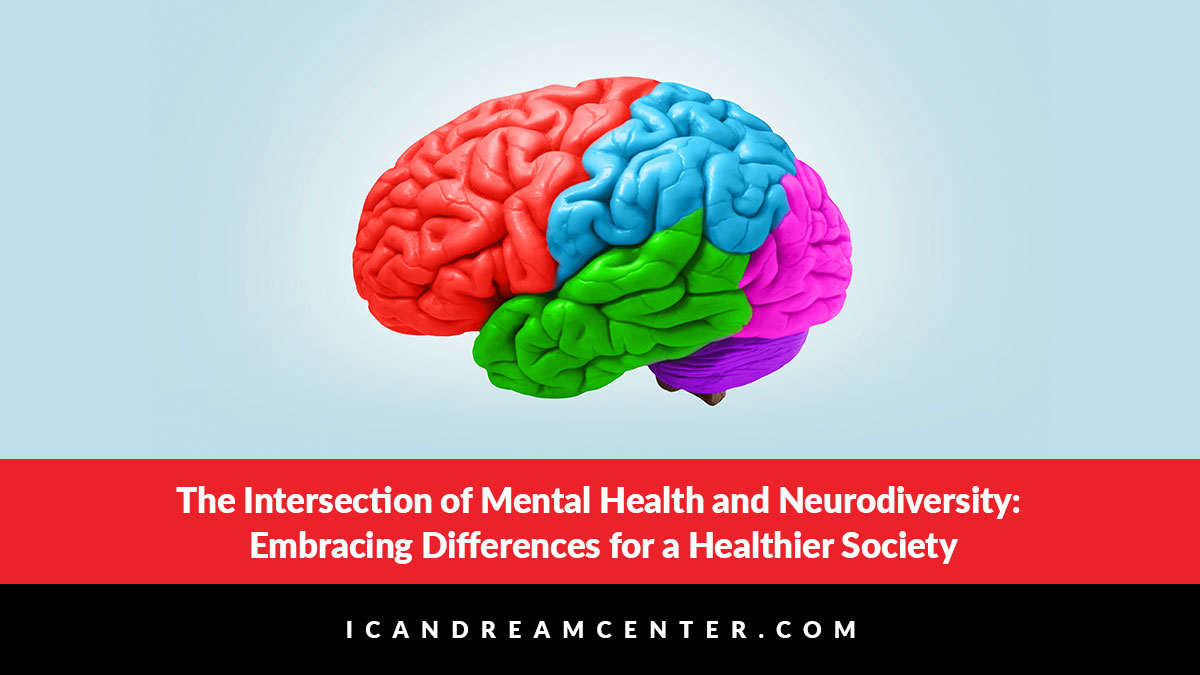
The Intersection of Mental Health and Neurodiversity: Embracing Differences for a Healthier Society
In recent years, there has been a growing recognition of the importance of mental health and neurodiversity, both as distinct fields and in terms of their intersection. Understanding this intersection is crucial for fostering an inclusive society that promotes the well-being of all individuals, regardless of their neurological makeup.
What is Neurodiversity?
Neurodiversity is a concept that recognizes and respects the natural variations in human brain functioning. Coined by sociologist Judy Singer in the late 1990s, the term promotes the idea that neurological differences, such as autism, ADHD, dyslexia, and other conditions, are normal variations in the human genome. These differences are not necessarily deficits or disorders but rather unique ways of experiencing and interacting with the world.
Mental Health: A Universal Concern
Mental health encompasses emotional, psychological, and social well-being. It affects how we think, feel, and act, influencing how we handle stress, relate to others, and make choices. Mental health is critical at every stage of life, from childhood through adulthood. However, mental health challenges, such as anxiety, depression, and bipolar disorder, can affect anyone, irrespective of their neurological makeup.
The Intersection of Mental Health and Neurodiversity
The intersection of mental health and neurodiversity is a complex and multifaceted area that requires nuanced understanding. Here are some key aspects to consider:
- Co-Occurring Conditions: Many neurodivergent individuals experience co-occurring mental health conditions. For instance, people with autism are more likely to experience anxiety and depression compared to the neurotypical population. Recognizing and addressing these co-occurring conditions is vital for providing comprehensive support.
- Stigma and Misunderstanding: Both neurodiversity and mental health issues are often subject to stigma and misunderstanding. Neurodivergent individuals may face additional challenges due to societal misconceptions and biases. This can lead to misdiagnosis, inadequate support, and increased stress, exacerbating mental health issues.
- Tailored Approaches: Traditional mental health treatments may not always be effective for neurodivergent individuals. Therapeutic approaches need to be tailored to accommodate different ways of thinking and processing information. For example, cognitive-behavioral therapy (CBT) can be adapted to better suit individuals with autism by incorporating more visual aids and concrete examples.
- Strength-Based Perspectives: Emphasizing strengths rather than deficits is crucial in both neurodiversity and mental health fields. Many neurodivergent individuals possess unique talents and perspectives that can contribute significantly to various domains. A strength-based approach can boost self-esteem and resilience, which are protective factors for mental health.
- Inclusive Environments: Creating inclusive environments that accommodate neurodiverse individuals can significantly improve mental health outcomes. This includes adjustments in educational settings, workplaces, and public spaces to ensure accessibility and acceptance. Simple changes, such as providing quiet areas or allowing flexible work arrangements, can make a significant difference.
Promoting Mental Health within the Neurodiverse Community
- Awareness and Education: Raising awareness and educating the public about neurodiversity and mental health is essential. This can reduce stigma, promote understanding, and foster a more inclusive society.
- Advocacy and Policy Change: Advocacy for policy changes that support neurodiverse individuals in all areas of life, including healthcare, education, and employment, is crucial. Policies should ensure access to appropriate mental health services and accommodations.
- Support Networks: Building strong support networks for neurodivergent individuals can enhance mental health. This includes family, friends, support groups, and professional services that understand and respect neurodiversity.
- Research and Development: Ongoing research into the intersection of neurodiversity and mental health is needed to develop better diagnostic tools, treatments, and interventions. This research should be inclusive and participatory, involving neurodivergent individuals in the process.
Conclusion
Understanding and embracing the intersection of mental health and neurodiversity is essential for creating a society that values and supports all individuals. By recognizing the unique challenges and strengths of neurodivergent individuals, we can promote mental well-being and foster an environment of acceptance and inclusion. It is time to move beyond merely accommodating differences to actively celebrating and harnessing the diverse ways of thinking that enrich our world.
